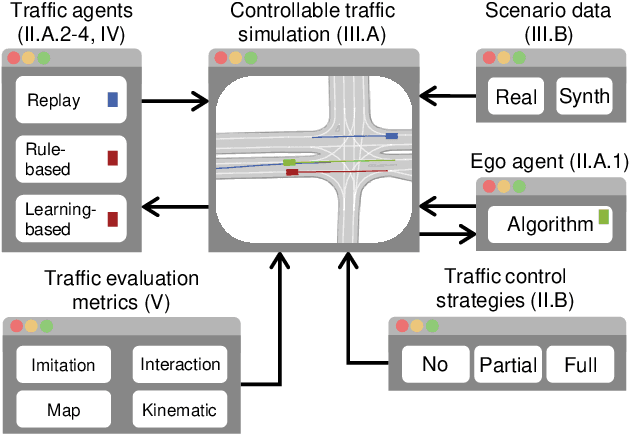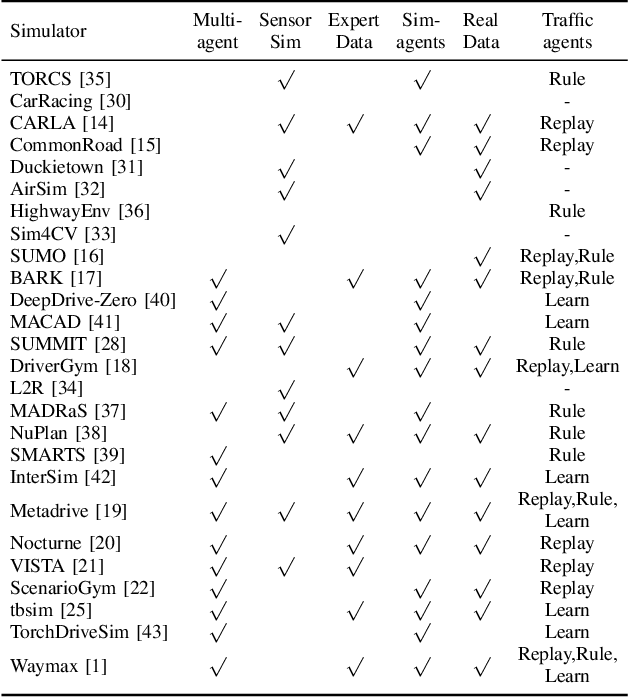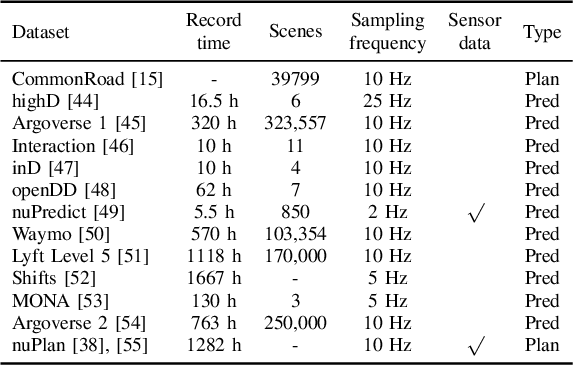Adversarial and Reactive Traffic Agents for Realistic Driving Simulation
Paper and Code
Sep 21, 2024



Despite advancements in perception and planning for autonomous vehicles (AVs), validating their performance remains a significant challenge. The deployment of planning algorithms in real-world environments is often ineffective due to discrepancies between simulations and real traffic conditions. Evaluating AVs planning algorithms in simulation typically involves replaying driving logs from recorded real-world traffic. However, agents replayed from offline data are not reactive, lack the ability to respond to arbitrary AV behavior, and cannot behave in an adversarial manner to test certain properties of the driving policy. Therefore, simulation with realistic and potentially adversarial agents represents a critical task for AV planning software validation. In this work, we aim to review current research efforts in the field of adversarial and reactive traffic agents, with a particular focus on the application of classical and adversarial learning-based techniques. The objective of this work is to categorize existing approaches based on the proposed scenario controllability, defined by the number of reactive or adversarial agents. Moreover, we examine existing traffic simulations with respect to their employed default traffic agents and potential extensions, collate datasets that provide initial driving data, and collect relevant evaluation metrics.
 Add to Chrome
Add to Chrome Add to Firefox
Add to Firefox Add to Edge
Add to Edge